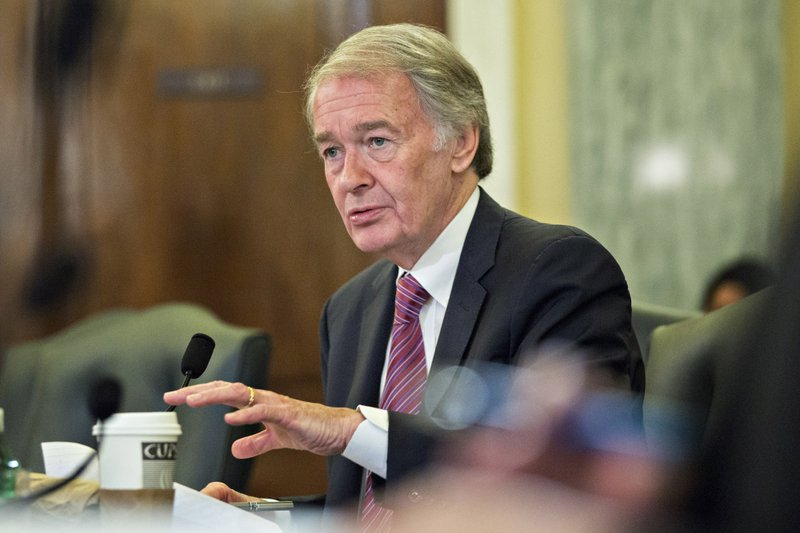WASHINGTON -- When the Federal Communications Commission voted last month to deregulate Internet providers by eliminating the agency's Internet neutrality rules, opponents of the decision vowed to fight it in Congress and in court. Now, those who are pushing for the FCC's vote to be overturned say they've won an initial victory.
Senate Democrats led by Ed Markey, D-Mass., have now amassed 40 co-sponsors for a congressional measure that, if successful, would invalidate the FCC's recent vote. In doing so, the lawmakers passed a critical 30-member threshold allowing them to use the Congressional Review Act to seek to overrule the FCC.
Clearing that hurdle paves the way for a full vote on the Senate floor -- potentially forcing every senator to take a position on the FCC's rollback of the Internet neutrality rules. (The rules, passed under a Democratic FCC in 2015, banned Internet providers from blocking websites, slowing others, or speeding up apps and services that pay extra money for the privilege.)
"Congress has the power through the Congressional Review Act to overturn the FCC's actions," Markey said in a news conference Tuesday. "We will spend the coming months building our grass-roots support for the CRA."
It was not immediately clear Tuesday when a vote might take place. Some policy analysts speculate that it could occur over the summer. But the resolution faces long odds. Even if it passes in the Senate with a simple majority, it must clear the House and be signed by President Donald Trump. Trump supported the FCC's bid to undo the Internet neutrality rules, making it unlikely he would sign a piece of legislation undercutting the move.
Trump is no stranger to the Congressional Review Act. He is the first president to sign more than a dozen such resolutions after taking office, mostly targeting actions taken during former President Barack Obama's administration. For example, last year Trump signed a resolution under the Congressional Review Act designed to repeal the FCC's Internet privacy rules for Internet providers.
Those rules -- which are distinct from the Internet neutrality rules -- sought to prevent companies such as AT&T and Verizon from using customer data for advertising purposes without sufficient consumer consent. The broadband industry argued that the rules were stifling and unfair, given that Internet companies such as Google and Facebook do not face such restrictions.
Despite the hard road ahead, FCC critics view the coming months as an opportunity to turn Internet neutrality into a campaign issue for the midterm elections.
"Lawmakers from both parties cannot hide from their constituents on this issue," said Fight for the Future, an Internet advocacy organization. "Any lawmaker foolish enough to be on the wrong side of history by voting against the free and open Internet will regret it come Election Day."
The FCC didn't immediately respond to a request for comment.
Business on 01/10/2018
